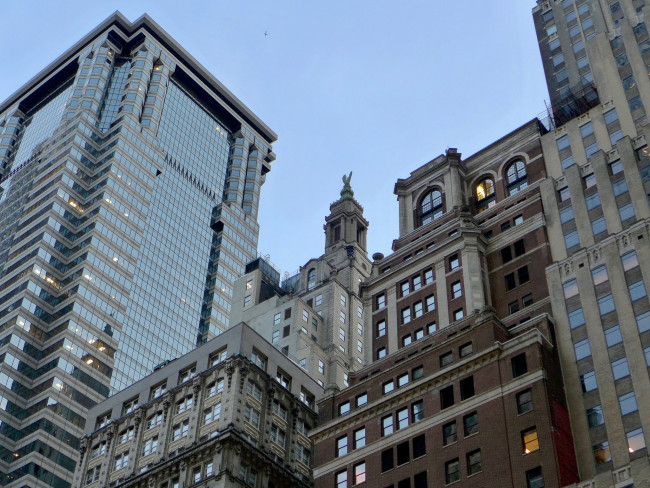Amazon jilted NYC. What does it mean for buyers, sellers, and renters?
Like the collapse of a celebrity engagement, the Valentine’s Day breakup between Amazon and Long Island City is being picked apart and combed through for signs of where things went wrong.
A few things are immediately clear, however: Developers and real estate brokers are among the most disappointed the deal did not go through—Amazon and its promised 25,000 workers was, in essence, the solution to the problem of apartment oversupply, and brokers were eager to make some money in commissions in an otherwise slow market. But renters and sellers too are expected to suffer some of the fallout, and recent buyers are left with a different neighborhood than the one they thought they were buying into.
If you're a renter, buyer, or seller in Long Island City, here's what you can expect now that Amazon is no longer coming to the neighborhood.
Impact on renters
In spite of glut of rental apartments in LIC—about 11,700 units are expected to come online by 2020, according to the Long Island City Partnership—renters are in a damned-if-they-do-and-damned-if-they-don't kind of a situation. Essentially, rents would be expected to rise whether Amazon came to LIC or not.
Rents in northwest Queens were already rising, although whether that was the result of the "Amazon effect" was debatable. According to Douglas Elliman's latest market report, the median rent in the area for January was $2,815. That's up 6.2 percent from the prior year.
The Long Island Partnership issued a statement saying the decision was a blow to residents but that the original decision showed just how far the area had come and there would be more opportunities on the horizon.
Andrew Barrocas, CEO residential brokerage firm MNS, says Amazon’s decision is unlikely to have a huge impact on the rental market. He says the influx of Amazon jobs would certainly have raised rents but says even before the tech giant talked of coming to Long Island City, there were no shortage of renters.
Jonathan Miller, president of real estate appraisal firm Miller Samuel, told Yahoo Finance that he expects rents to rise in Long Island City even without Amazon, thanks to the slowdown in the sales market, which is driving would-be buyers into the rental market.
One impact of Amazon’s exit: Barrocas says improvements in infrastructure, schools, and facilities will take longer.
Impact for buyers and sellers
Prices in Queens have been at or close to record levels for a couple of years now and Long Island City house prices spiked in December last year amid the Amazon HQ2 hype.
According to numbers collected by StreetEasy, in the five weeks after the plans leaked, nearly 20 percent of units for sale in Long Island City increased their prices. Notably, in the five weeks before the announcement, not a single listing in the area had raised its price. Proximity to the Amazon campus became a perk in listings.
Eric Benaim, CEO of brokerage Modern Spaces, says for him, the Amazon effect was real. In November and December last year he got a rush of business. His company sold 300 apartments in new Long Island City developments, he says, which is well over his usual monthly average of 40 condo sales.
"In 2018, people started taking their time and shopping around more diligently, and there were a lot of people on the sidelines. In addition, people weren't sure about what was going on with the Brooklyn L-train—but all these people started rushing to LIC and decided to pull the trigger," he says.
Benaim insists the area is still a hot neighborhood and doesn't predict sales prices to drop.
Nancy Wu, StreetEasy’s data analyst, isn't so sure. She says, “We expect asking prices and buyer interest to fairly quickly revert back to their pre-announcement levels,"
Homes in less-dense areas adjacent to Long Island City, such as Sunnyside, Astoria, and Greenpoint, which anticipated an uptick in demand may no longer see that.
To those who bought based on HQ2’s arrival, Barrocas doesn't think they made a bad investment, but the vision buyers may have had for the neighborhood will take longer to arrive.
Wu says the Amazon reversal highlights the risk inherent in speculative investment in real estate in the city.
“While the city has enjoyed swift economic growth, turning a quick profit remains difficult, particularly in areas dense with new development,” she says.
What’s clear going forward is community involvement can make or break a deal like this. “We need to get buy-in from everyone. We can’t just assume that this is what everyone wants," says Barrocas.






























